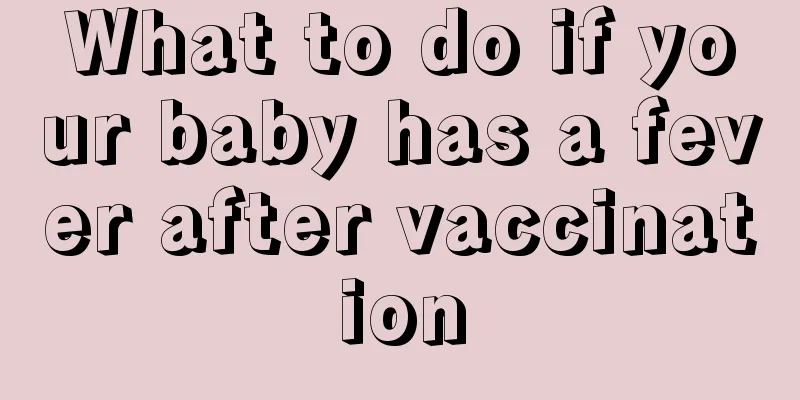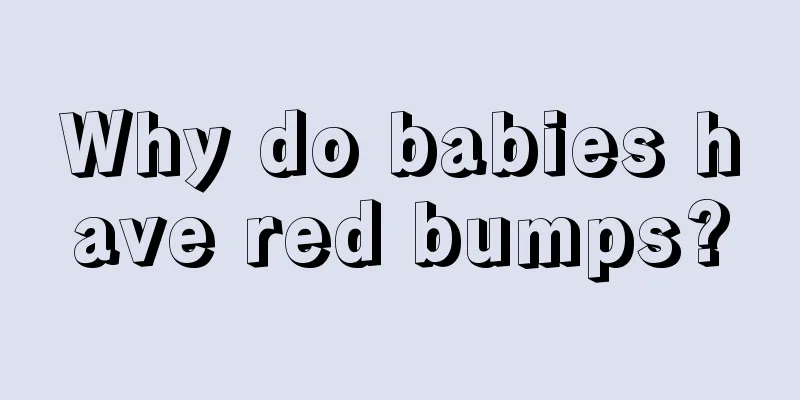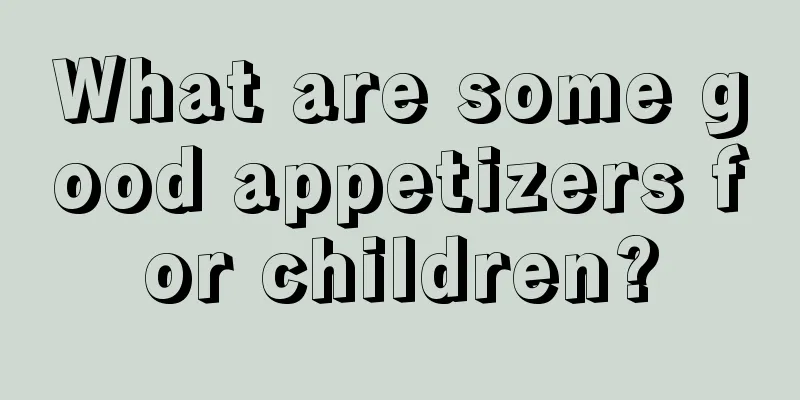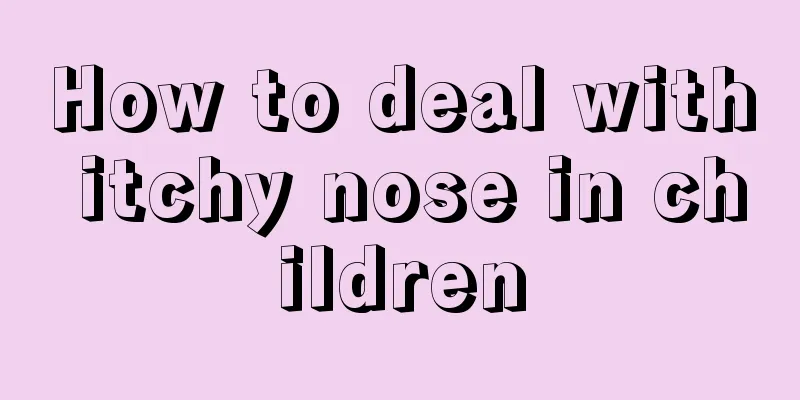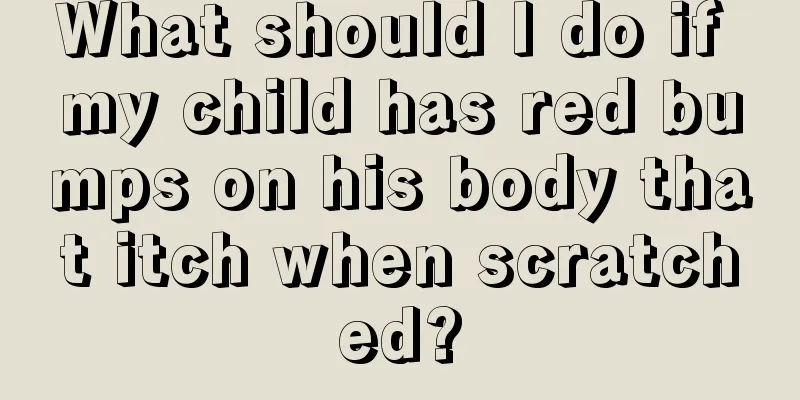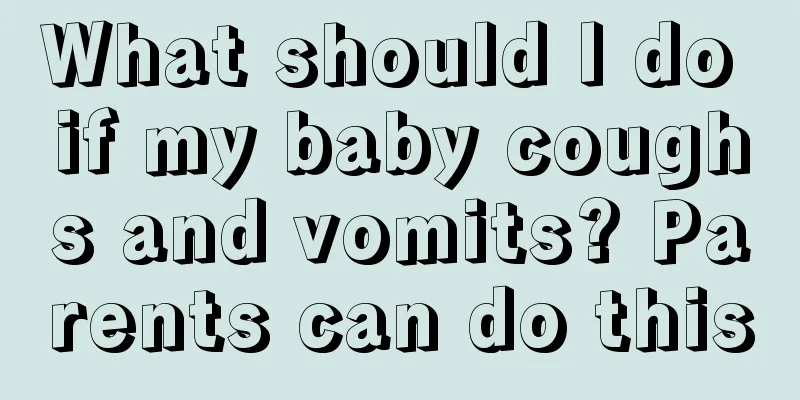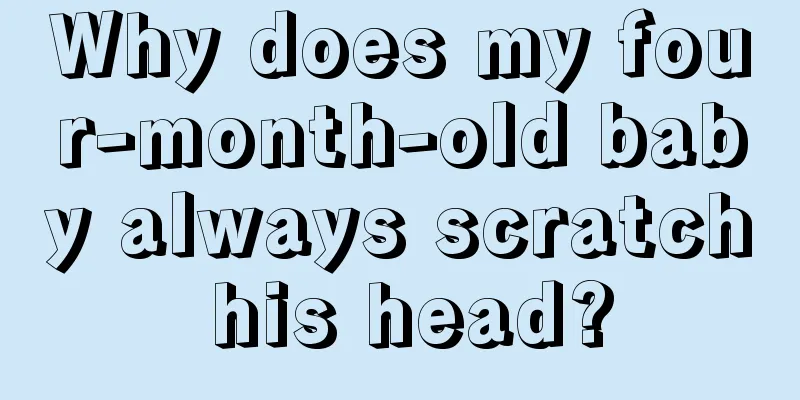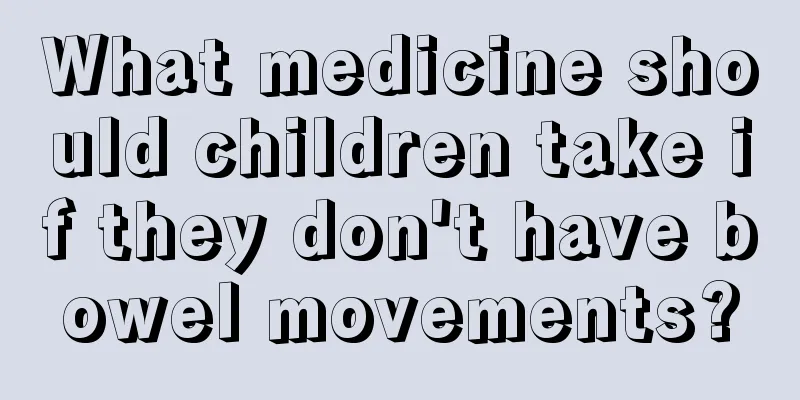How to prevent a four-year-old child from having a fever and convulsions?
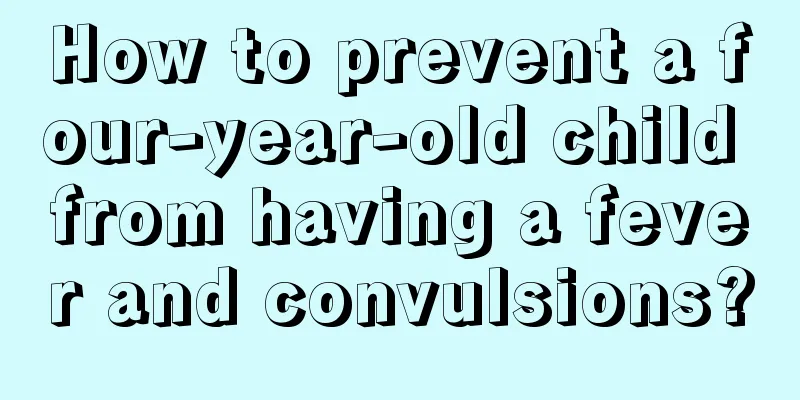
|
Children are very likely to have convulsions when they have a persistent high fever. Family members must pay great attention to this and not take it lightly. After all, convulsions carry great risks. So how to prevent convulsions in a four-year-old child with a fever? In fact, convulsions are mainly caused by fever. As long as the fever can be reduced as soon as possible when it is at a low level, many problems will not occur. The child has a fever and is still covered. According to the parents, there is no family history of convulsions. The first seizure occurred at home. The child had a slight fever at the time, so the family dressed him in more clothes and covered him with more quilts, thinking that the fever would go away if he sweated a little. This is of course a misunderstanding. A child with a fever is already in a high temperature state. If he is covered up, his body temperature will not dissipate and will easily continue to rise, leading to convulsions. Not taking your temperature often enough. The last time the parents took the child's temperature before the seizure was half an hour ago, and the temperature was 39°C after the seizure. It needs to be explained that during this half hour, the child's body temperature may have risen to a very high level. Therefore, if your child has a fever, you must measure his temperature more frequently. In addition, it is important to take medicine in time. If the body temperature does not exceed 38.5°C, physical cooling should be used, but the body temperature should be measured regularly. If the temperature continues to rise and exceeds 38.5°C, medicine should be taken in time. Especially for children with a history of febrile convulsions, they should take antipyretics when the fever reaches 38°C, because it takes some time for the drugs to be absorbed and take effect. Generally speaking, the first day of fever, especially the first 12 hours, is the most dangerous, as a sudden rise in body temperature can easily lead to febrile convulsions. If the child has a history of high fever convulsions, parents should always have antipyretics on hand, including when traveling. Check whether the medicine is expired before taking it, pay attention to the dosage, and do not reduce the dosage on your own. Do not drink a lot of water immediately after taking the medicine to prevent vomiting and spitting out the medicine. You can drink small amounts of water again after 20 minutes until the medicine takes effect. Through the above introduction, everyone is clear about how to prevent fever and convulsions in four-year-old children. Any disease requires preventive measures to prevent it from happening and avoid being easily harmed. It is very necessary to take good care of children's diet and daily life. Ensuring children's health and normal development and growth is the most important thing. |
<<: What should I do if my baby has repeated fever and diarrhea?
>>: What is the reason for a two-year-old baby to have a fever and convulsions?
Recommend
There is a white spot on the child's face in summer
Summer is the peak season for diseases, let alone...
What to do if baby's shoes rub feet
Although the new shoes you buy look good, you wil...
How many months does it take for a newborn baby to have teeth?
At what month is the latest for a newborn baby to...
How to adjust the newborn baby's upside-down sleep
Children's sleep is of great significance to ...
What is the reason why children don't grow taller?
Parents will naturally worry if their children do...
Causes of cerebral palsy in children
Many parents want to know why their children suff...
Causes of swollen lymph nodes in children
Many people have a deep understanding of the dise...
What to do if your child stutters
Stuttering is what we often call stammering. Many...
What causes milk allergy in babies?
Babies need to drink a certain amount of milk, bu...
Can babies eat black fish?
For parents with children at home, one thing they...
Should I cover my child with a blanket when he has a high fever?
Fever is a disease in which the human body temper...
What should I do if my child has a low-grade fever and cough? How can I treat it?
Low fever is a very common disease in life, and b...
Is a jaundice index of over 300 serious?
Neonatal jaundice is a disease that almost all ch...
What is the best thing for your baby to eat for the first time?
In our daily life, many babies grow up drinking b...
Do hand, foot and mouth disease blisters itch?
As we all know, hand, foot and mouth disease will...

